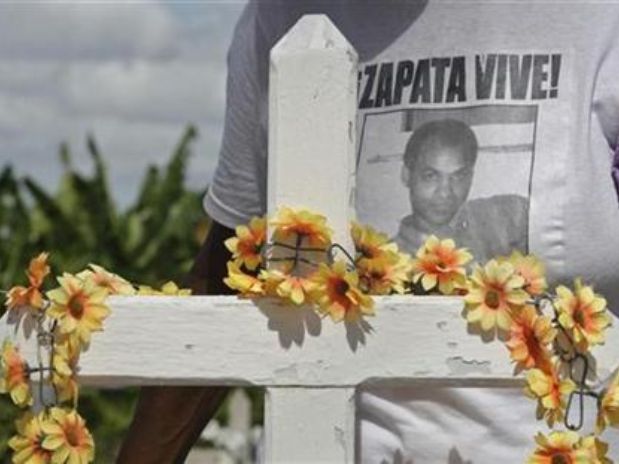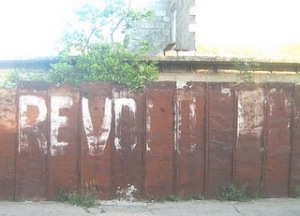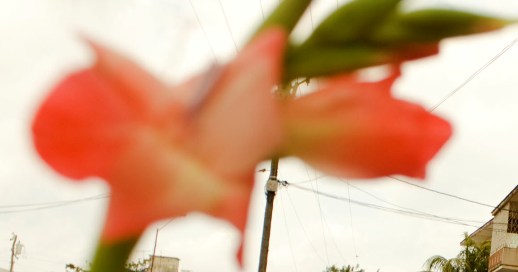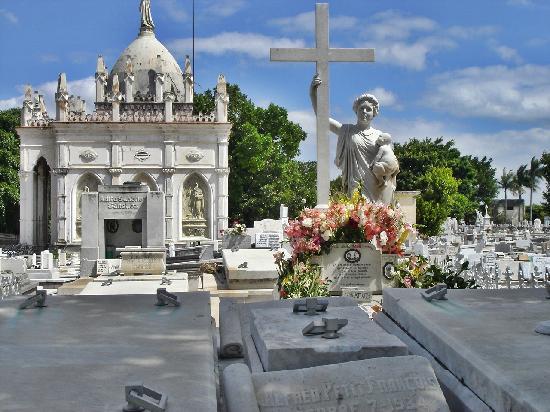I have taken some time to reply to the many comments to the post “Fantasies and realities of a virtual rebellion”, but I had good reason to do so. The reactions from readers, in the face of what might have seemed like a cold shower, were diverse, but expected. They did not disappoint or surprise me. The truth is that such participation shows that the topic was interesting to many … The lords of certain “leanings” that are scattered around here would love to see Cubans show such interest in debating them! Thank you sincerely for nurturing this little forum with your ideas.
There’s been everything, “as in a drug store”, like my grandmother used to say. Some comments show some misunderstandings, I’m guessing due to reading too fast. There are also those who respectfully offer opinions that don’t agree with mine, which offers the opportunity to incorporate different perspectives about matters that affect all of us, while some that do agree with irrelevance or with few possibilities to achieve a demonstration or with little prospect of achieving an Egyptian-style uprising on the Island not only provide arguments, but they also suggest other avenues for action. I won’t even bother to respond the offenses, of course.
In general, analyzing the compliments readers have honored me with, I could not help feeling like that perverse childhood friend, who, with malicious intent, not only told us that the Magi were not real, but –- in addition — took us by the hand with evil pleasure to prove it by showing us the hiding place where our parents, almost with the same enthusiasm as ours (or maybe even more enthusiastically) kept our new toys hidden until the camels’ expected arrival. We felt both a passing anger towards the illusion-breaker that, with his clean stabbing, smashed a beautiful childhood dream, we would end up being grateful for having shown us the deceit. Better yet, after the bitter pill of disappointment, we had the advantage to negotiate directly with our parents for toys each year, according to the possibilities, without going through the hassle of writing the necessary letter –- also full of deceit — to Melchior, Gaspar and Balthazar in order to demonstrate that we were worthy of their grace.
I use this parable also quite deliberately, because most of the time, when facing difficult situations we behave with the immaturity typical of a kid who doesn’t want to see reality. Behold! this time, I was the evil friend who opened the closet door and showed the hidden toys while, knowing our reality, I insisted that no protest would ever come to fruition in Cuba. Some reactions were so ardent in their fury that I was even accused of spoiling the successful achievement of the uprising with my “pessimistic” attitude, without considering that it is not about what I want or don’t want, but about the Cuban reality, such as it is. Those who think that way are overestimating my extremely limited (almost nil) influence over the opinion of a people who in their majority does not have Internet access and — as a result — does not know my blog. I truly believe that I am more useful in helping to sow the little civil seed than encouraging revolutions of doubtful outcome. In any case, civil awareness promotes men, while revolutions unleash beasts. You can bet that, hypothetically, if I had the power to influence the thoughts and actions of my countrymen, I never would have called for any exercise that could lead to violence, in the same way that I never suggested to Cubans living abroad to stop helping to maintain the regime with their family remittances or with their trips to the Island. I understand the powerful reasons of those whose parents, children or siblings are still living here, though I also know of some opportunists on this side of the strait who live without the slightest effort, waiting for the manna that comes from the sacrifice of his relatives abroad. I have spoken: there is a bit of everything.
I digress at this point to place an unavoidable marker. To my personal satisfaction, and to respond to a dart someone threw at me which I did not deserve, I maintain that I am one of those Cubans who does not receive any remittances, either from individuals or from institutions, for which I congratulate myself more every day. My income stems from my own work, though — given the circumstances in Cuba — I don’t just work for the money, but also for the satisfaction of helping to bring on change, doing what I consider useful. I accept handouts from absolutely no one; therefore, the possibility of rubbing that in my face does not exist. This does not mean, however, that I haven’t accepted cell phone account refills from some of my friends and supporters, internet cards I’ve been given and other items like flash drives, discs, etc., that have supported my work as blogger. I’ll be eternally grateful for this.
Another reason why I delayed in writing this reply, possibly unnecessary, judging by the experiences life has taught us, was to miss the date of the alleged revolt to which so loudly and for so long before we were being summoned, giving both the rebels the opportunity to prepare and the regime to prevent it. Just as we knew beforehand, on February 21st there was no protest at all. And it was clear that there couldn’t be one, not only by the limitations that I indicated in that controversial post and that numerous commentators have expressed, but because the better part of those who might have joined the protests were detained at police units, or under house arrest by the repressive forces; not to mention the deployment of the instruments of the regime throughout the area of the Avenida de las Misiones (across the street from the former Presidential Palace) — selected location for the start of the action — with the task of preventing any demonstration attempts.
Incidentally, similar measures were taken throughout the Island for days prior to February 23rd to prevent public commemoration of the first anniversary of the death of Orlando Zapata Tamayo. There have been arrests in almost all provinces. In places like Banes, for example, the town was literally taken over by the political police and troops were placed at strategic points. Reina Luisa Tamayo’s house was surrounded from all accessible points by soldiers with rifles. Government fear has been so impressive on the face of the symbolic stature of Zapata that even they, paradoxically, have helped to increase it with such excessive deployment.
But, back to the original topic, I would have preferred that the passion had not blinded the good sense of some readers. You can be in disagreement of certain criteria or positions (I enthusiastically welcome the lack of unanimity), but I insist that we must not confuse our desires with reality. I live here, how I wish for change! I don’t know if somewhere in the world what people want will occur exactly; I allow myself to doubt it. I do not pretend to pontificate on political thought, since I have no capacity for it, but to exchange criteria by offering my views. I cannot, however, share absurd generalizations as someone who holds that “all dictatorships are the same” –- the truly shocking example of Pinochet — Chile’s economic benefactor who saved the country from communist ruin, but over whom weigh thousands of deaths and disappearances; nor can I consider as a “minuscule sum” the deaths of “10, 20, 30, or maybe 100 Cubans”, especially when those who seem to consider them a kind of collateral damage is safe from risk. I really prefer to not label such an attitude: the epithet would not sound pleasant.
Finally, I have not chosen to “wait.” In my own way, I do what is possible for me to do to contribute to changes in Cuba. I’m not sitting around, waiting. I’m doing, as my fellow travelers are, and also those beyond the reefs, who support and encourage us. Personally, my wish for Cuba is a process of gradual and orderly changes, whose synergy will arise from the maturity and coherence that all social components would achieve. It would not be a 15-day process, but neither is it expected to be too long. After 52 years of totalitarianism, any hint of an aperture would accelerate the changes. More than a century of improvisations and patches have proven to be fully ineffective, and if we want to ultimately attain a strong and lasting democracy, we also need to have citizens, just like Estrada Palma stated in the early faltering and truncate Republic. I have no answers but I do have hope, which negates any presumption of pessimism about me. I also have the will and perseverance to continue, as do my measured energies and meager talents, doing my tiny job just like a polyp piercing the wall. Believe me, this is an exercise of pure faith nurtured on the most resounding optimism.
Translated by Norma Whiting
February 25, 2011




 This February 23 marks the first anniversary of the death of Orlando Zapata Tamayo after suffering a hunger strike that lasted 86 days. The official press hastened to say that it was just another fallen mercenary in service to the empire. But not everyone in the general public subjected to this propaganda saw it that way, even some avowed communists revealed their bewilderment in remarks circulated by email: can one give their own life, coldly, in exchange for money?
This February 23 marks the first anniversary of the death of Orlando Zapata Tamayo after suffering a hunger strike that lasted 86 days. The official press hastened to say that it was just another fallen mercenary in service to the empire. But not everyone in the general public subjected to this propaganda saw it that way, even some avowed communists revealed their bewilderment in remarks circulated by email: can one give their own life, coldly, in exchange for money?

